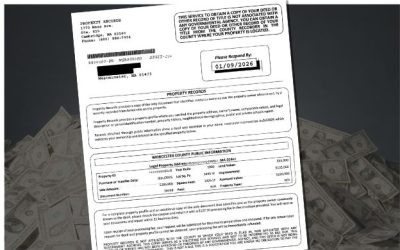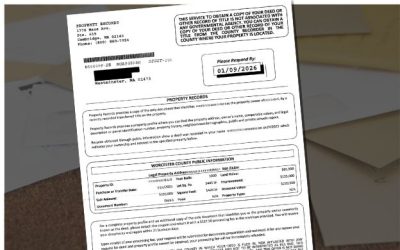
Jun 19, 2025 | Around The Home, Around The Hoome, Artificial intelligence, Buying Real Estate, Chapter 7 Bankruptcy, Consumer Tips, Credit Scoring, Fair Housing, Federal Reserve, FHFA, Financial Crisis, Financial Fraud, Financial Reports, Foreclosure, Happy Thanksgiving, Holidays, Home Building Tips, Home Buyer Tips, Home Buying Tips, Home Care, Home Care Tips, Home Closings, Home Decorating, Home Financing Tips, Home Maintenance, Home Mortgage, Home Mortgage Tips, Home Seller Tips, Home Selling Tips, Home Tips, Home Values, Homebuyer Tips, Homeowner Tips, Housing Analysis, Housing Market, Interesting Stuff, Investment Properties, Legislation, Market Outlook, Mortagage Tips, Mortgage, Mortgage Guidelines, Mortgage Lenders, Mortgage Rates, Mortgage Tips, mortgage-rates-whats-ahead-september-17-2012, News, Organization Tips, Personal Finance, Probate Law, Rankings, Real Estate, Real Estate Agent Information, Real Estate Definitions, Real Estate Tips, Real Estate Trends, Realtors, Selling Real Estate, Selling Your Home, Short Sales, Statistics, Success, Taxes, The Economy, Title Insurance
Whether you’re buying with cash, investing from abroad, transferring property to a family member, or just trying to close without a headache, you’ll want to know what can trigger federal scrutiny — and how to stay off the radar.
From flagged wire transfers and shell companies to gift-of-equity sales and land near military zones, this isn’t your average title-and-keys situation.
It’s real estate with a side of national security, tax enforcement, and financial crime prevention.
Is Big Brother Watching Your Home Sale?
What Buyers and Sellers Should Know About Federal Oversight
You’re Not Paranoid — They Might Actually Be Watching
What you didn’t know on how federal agencies keep tabs on select real estate transactions.
Your Closing Packet Could Be a Federal File
How Your Paper Trail Might Raise Red Flags — And What You Can Do About It
What the FBI, IRS, and Homeland Security
Could See in Your Closing Docs
We’re unpacking what agencies might spot inside your deal’s fine print.
Caught in the Crosshairs? What Triggers Federal Interest in Your Home Sale
The Top Red Flags That Could Invite a Closer Look from Washington
Cash, LLCs, or Land Near a Base? You Might Just Be a Target
The warning signs that put your deal on the government’s radar — and how to stay clear.
Follow the Money: How the IRS Tracks Financial Crimes Through Real Estate
From Unreported Income to Shell Game Schemes
— What IRS-CI Is Looking For
Your Closing Could Be an Audit Trigger — Here’s How the IRS Sees It
Explore the patterns, documents, and loopholes that turn ordinary deals into criminal cases.
Providing title, escrow, closing and settlement services to clients throughout Massachusetts and New Hampshire
“As a realtor, the Rocheford team went above and beyond to make sure my client was not only protected from a legal standpoint but also operated in a timely manner to execute the sale of my client’s dream home.
Thank you for the great experience for myself and my client! Looking forward to our next deal together!”
Realtor®
“I don’t usually use attorneys that often. But if an attorney is needed, I couldn’t recommend this law office enough. I always pride myself on responding quickly to emails and calls, but I was in awe of how fast paralegal Robert Heckman would respond to us. We sold our house a couple months ago and then did a two-part land swap with neighbors and my folks, and both transactions were seamless, including coming in to sign paperwork.
In short, if you need a law office that is responsive and attentive to detail, definitely consider them!”
Leominster, MA
“Excellent, conscientious and professional.
The communication throughout our Real Estate transaction was better than expected. We thought the fee to be very reasonable considering the work accomplished on our behalf. The law office handled the entire closing without us having to be in attendance….as we requested. I have had experience with very competent lawyers and law firms as the result of my previous profession. I would place this law office right up there among the best in their real estate field of expertise and surprisingly at very reasonable and affordable rates/fees.”
Buzzards Bay, MA

Aug 9, 2023 | Buying Real Estate, Mortgage Lenders, News, Selling Real Estate, Short Sales
Title insurance underwriters, concerned about the risk in insuring short sale flips have taken a position of not insuring them. Old Republic Title Insurance announced to it’s agents last month that it would no t authorize the issuance of lender or owner title insurance policies on short sale flip transactions.
So what is a short sale flip?
A short sale flip is when a property is purchased by a real estate “investor” from a seller who has negotiated with the current mortgage holder(s) to release the mortgage(s) for less than what is owed, the purchaser of the property then flips, or resells, the property for a profit. (more…)
Aug 2, 2011 | News, Realtors, Short Sales
Short-sale disputes were designated as the most significant legal issue facing real estate professionals, according to therecent National Association of Realtors’. In addition, according to a NAR survey, REO agency issues, property condition and RESPA issues are among the the top issues facing real estate professionals today.
Read more here from DSNews.com.
Jul 17, 2011 | Buying Real Estate, News, Selling Real Estate, Short Sales
Remember a short sale is a desperate measure in desperate times. Desperate people do desperate things. If you are involved in a short sale transaction in ANY capacity cross your t’s and dot your i’s. If the terms sound remotely shady to you, it probably is and the repercussions can be terrible. Make certain that you have good counsel.
http://money.cnn.com/2011/06/28/real_estate/short_sale_fraud_rising/
Apr 21, 2010 | Buying Real Estate, Legislation, Realtors, Selling Real Estate, Short Sales
The Home Affordable Foreclosure Alternatives (HAFA) program is a part of the Home Affordable Modification Program (HAMP), and offers a streamlined process for short sales and deeds-in-lieu of foreclosure. HAFA will allow homeowners to discharge their first mortgage debt without the credit-destroying step of foreclosure. The program also offers a $1,000 incentive to banks to permit short sales and a $1,500 bonus to homeowners for the purpose of relocation.
The HAFA program has eligibility guidelines:
• The property must be the owner’s principal residence
• The first mortgage must have originated before 2009
• The unpaid principal must be less than $729,750 for a single-family dwelling
• The borrower’s monthly payment must exceed 31% of their gross income
• The mortgage must either be delinquent or a default be reasonably foreseeable.
If borrowers meet the program requirements they will receive pre-approved short sale terms from their lender, which will include a minimum acceptable proceeds figure for the sale. The homeowner will be required to list the property for sale with a Realtor® and close within 120 day, extensions may be permitted up to a total of 12 months.
Based on the short sale agreement with the lender, HAFA requires property owners to be fully released from any future liability on their first mortgage debt, and in some cases, subordinate debts, so that when the home is sold, the borrower is free and clear of their mortgage.
The program ends on December 31, 2012. HAFA does not apply to FHA or VA loans. There is an extensive amount of paperwork to be completed to participate in the program, Homeowners wishing to take advantage of the relief offered are encouraged to work with a experienced Realtor®.
Nov 10, 2009 | Realtors, Selling Real Estate, Short Sales
I was asked recently what the practical alternatives to doing a real estate short sale were. Although evey individual situation is unique and some other alternative may be available here are some of the more common alternatives:
Loan modification – If you want to keep you home but cannot afford the current mortgage terms, you may be able get the lender to work with you to modify the loan terms. This is not an easy process either. You will need to provide much of the same financial information that you provide for a short sale. The lender must be convinced that the modification will be a long term benefit to them and an option that will also work for you. If the lender determines that modifying the loan will only postpone a short sale or foreclosure, they will not likely work with you.
Foreclosure – Foreclosure is the judicial process that the lender will pursue to take ownership of the property in order to sell to cover the amount due on the promissory note. A foreclosure will also dramatically effect your credit and your future ability to borrow, especial for the purchase of another home. If you do nothing about your current situation foreclosure is the inevitable conclusion. If the lender does foreclose and is able to sell the real estate for more than what you owed to them they are required to return the difference to you (after the payment of all of their costs and expenses).
Depending on the circumstances, you may be subject to pay tax on the amount of the deficiency between the foreclosure sale price and the amount owed on the note.
Deed in lieu of foreclosure – This is the process where you would deed all of your interest in the real estate to the lender. This process may also have financial ramifications, and you lose all legal interest in the property. However, this may be one of the simplest alternatives if the lender agrees to accept the deed. In any event be certain that you know all of the facts and how signing a deed in lieu of foreclosure could effect you.
Bankruptcy – This is often the last resort if you cannot sell the real estate and foreclosure is not an option for you. It is possible file bankruptcy and retain ownership of owning your home, but bankruptcy will severely damage your credit for at least seven years and you will not have control of your finances.
Get Professional Assistance –Even if you think a short sale is the right answer for you, and you think you can negotiate the terms and process on your own, consult with you professional advisers beforehand. Speak with a Certified Public Accountant, a REALTOR, a Real Estate Attorney and a Bankruptcy Attorney. Having the right advice can is key to a successful outcome.













